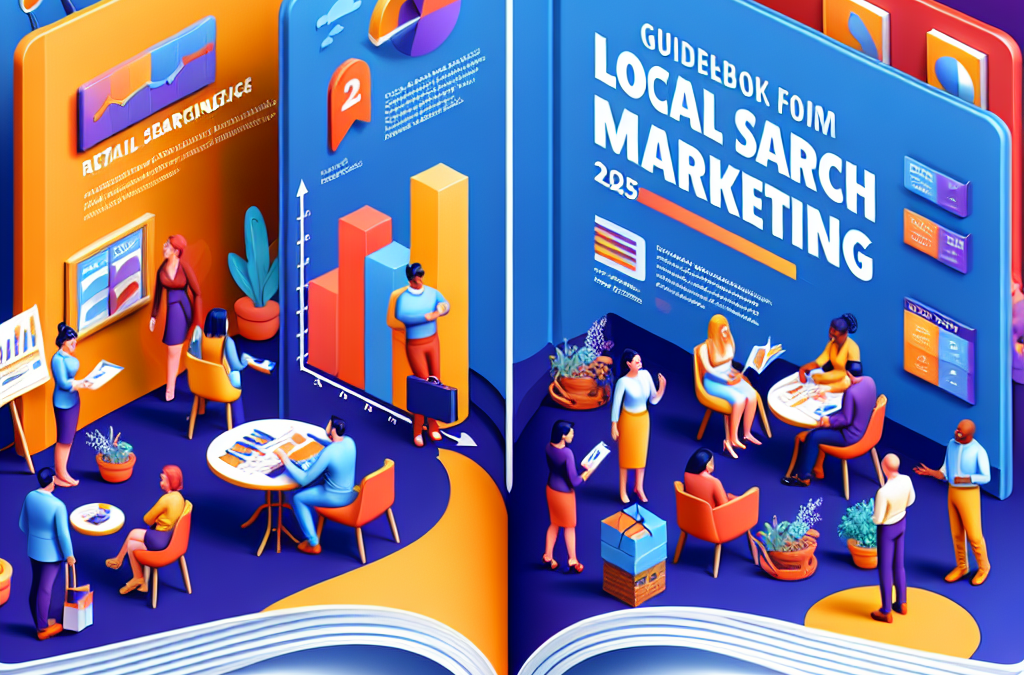1. Understanding Local Search Marketing for Retail
What Is Local Search Marketing for Retail?
Local search marketing for retail is an essential strategy that helps your store appear prominently when customers search for products, services, or stores near them. In 2025, more consumers than ever rely on local search to find nearby retail options. This means your business visibility hinges on how well you implement local SEO practices.
Think of it as your digital storefrontâs front doorâif your local search presence is optimized, customers will find your retail store when they need it most. For example, a popular clothing retailer in New York City will want to appear at the top when someone searches “fashion stores near me” or “clothing stores NYC.”
Investing in local search marketing for retail allows you to connect with nearby customers actively searching for what you offer. This targeted approach is more efficient and cost-effective than traditional advertising and is crucial for competing in today’s landscape.
Why Local Search Matters in 2025
Recent data reveals that over 76% of people who search on their smartphones visit a store within a day. The trend for local searches continues to grow, fueled by advances in voice search and AI-powered devices. For retail businesses, this highlights the importance of having a strong local search presence.
Moreover, Google reports that 80% of local searches convert into in-store visits or calls. This statistic underscores that optimizing for local search isn’t just about visibility; it’s about driving tangible foot traffic and revenue. In 2025, mastering local search marketing for retail is vital to staying competitive.
Therefore, understanding and implementing effective local marketing tactics will directly impact your storeâs growth and profitability this year.
2. The Importance of Google My Business Optimization
Setting Up a Strong Google My Business Profile
One of the foundational steps in local search marketing for retail is claiming and optimizing your Google My Business (GMB) profile. A well-optimized GMB listing ensures your retail store appears in local pack results, maps, and localized searches. Make sure all information is accurate, complete, and up to date.
Include high-quality images of your store, products, and staff to improve engagement. Adding keywords naturally within your business description can also help your listing rank higher for relevant searches. For example, mentioning “affordable women’s fashion” if that describes your store can attract the right customers.
Regularly update your GMB profile with special offers, holidays, events, and new product launches to keep your listing fresh and engaging. This practice not only enhances visibility but also builds trust with your audience.
Leveraging GMB Features for Retail Success
Google offers various features such as Q&A, Posts, and Booking buttonsâusing these tools effectively can enhance your local search presence. For retail stores, posting upcoming sales or new arrivals via GMB Posts can attract local shoppers looking for deals.
Responding promptly to customer reviews demonstrates excellent customer service, which positively influences your local rankings. In 2025, integrating Google My Business with your overall local SEO strategy ensures a holistic approach that maximizes results.
Pro tip: Use insights from GMB to track how customers find your store and what actions they takeâvaluable data that informs your marketing efforts moving forward.
3. Local Keyword Research and Implementation
Finding the Right Local Search Terms
Effective local search marketing for retail starts with thorough keyword research tailored for your geographic area. Use tools like Google Keyword Planner and SEMrush to identify keywords your target audience is searching for, such as “best retail stores in Chicago” or “affordable electronics near me.”
Include long-tail keywords that reflect specific products and local attributes. For instance, “organic grocery store downtown Dallas” targets precise customer intent and increases your chances of ranking higher in relevant searches.
Don’t forget to monitor competitors’ keywords to identify gaps and opportunities. Analyzing what keywords they rank for can help shape your own keyword strategy.
Incorporating Keywords into Your Content and Listings
Once you identify your keywords, embed them strategically into your website content, meta descriptions, titles, and GMB profile. Use keywords naturally to avoid keyword stuffing, which can harm rankings.
For retail, consider creating location-specific landing pages targeted at each neighborhood or district you serve. This hyper-local approach can boost your visibility for localized searches.
Consistently updating content with relevant keywords aligned with current trends in 2025 will ensure your store remains top-of-mind for local consumers actively searching online.
Frequently Asked Questions
1. What is local search marketing for retail?
Local search marketing for retail involves optimizing your online presence so that your store appears prominently in local search results, maps, and directories. Itâs essential for attracting nearby customers who are actively looking for your products or services in 2025.
2. How can I improve my Google My Business listing?
Ensure your GMB profile is complete, accurate, and regularly updated with fresh photos, posts, and response to reviews. Use relevant keywords, add your business categories, and utilize all features to enhance your visibility.
3. Why are local citations important?
Local citationsâmentions of your business name, address, and phone number (NAP)âhelp boost your local SEO. Consistent NAP across directories and platforms ensures Google trusts your storeâs information, improving your local search rankings.
4. How does customer review management impact local search marketing for retail?
Positive reviews build trust, influence purchasing decisions, and can elevate your local search rankings. Encourage satisfied customers to leave reviews and respond promptly to all feedback to foster a positive reputation.
5. What are the future trends in local search marketing for retail in 2025?
In 2025, voice search, AI-driven local SEO, and personalization will dominate. Investing in enhanced mobile experiences and localized content will be crucial for retail stores aiming to stay ahead in local search visibility.
Conclusion
Mastering local search marketing for retail is no longer optionalâit’s essential for thriving in 2025. By focusing on optimizing your Google My Business profile, conducting effective local keyword research, building consistent citations, and managing customer reviews, you can significantly boost your storeâs visibility and attract more local customers. Remember, in the fiercely competitive world of retail, a strategic, up-to-date local search marketing approach can make all the difference. Embrace these tactics today and watch your retail business grow in the coming year!


